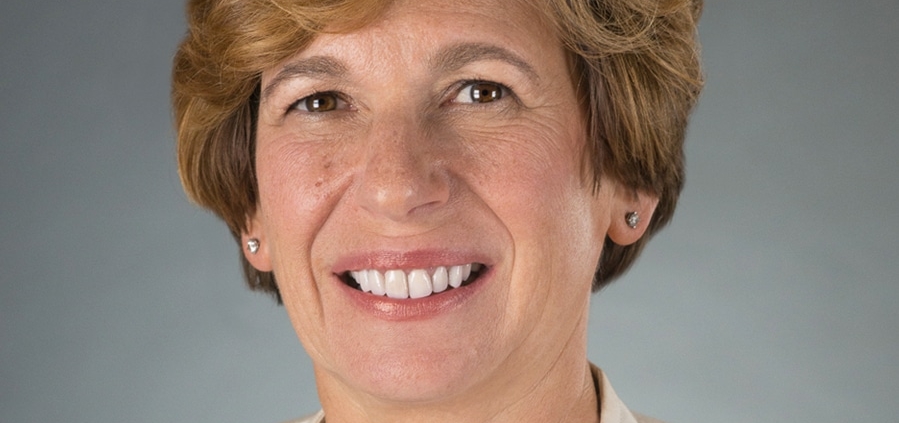Nine public service employees are suing Navient, the student debt service provider, for providing misleading and inaccurate information. They allege that Navient engaged in predatory lending, more interested in turning a profit than finding them the best repayment plan.
My guest today is Randi Weingarten, president of the American Federation of Teachers. ATF has been helping their members navigate the student loan industry. What they found is shocking.
For Randi, there is a legal and electoral path to find justice for student loan borrowers.
Citation: Weingarten, Randi, interview with Will Brehm, FreshEd, 133, podcast audio, November 5, 2018. https://www.freshedpodcast.com/weingarten/
Transcript, translation, and resources:
Will Brehm 0:56
Randi Weingarten, welcome to FreshEd.
Randi Weingarten 1:19
It’s great be with you Will.
Will Brehm 1:40
So, can you tell me a little bit about this Public Service Loan Forgiveness Program? What exactly is it?
Randi Weingarten 2:07
So, about 10 years ago, or so, Ted Kennedy, the then US senator from Massachusetts, got George Bush to actually sign into law, something called the Public Service Loan Forgiveness Program. And what that did was, it said that if you had worked as a teacher, as a nurse, as a cop, a firefighter, or in some other public service, that after 10 years of being employed in that profession, your loans for college would be forgiven. So, you know, there were other requirements, like you had to do 10 years of qualifying payments and things like that. But it was in recognition of the fact that these jobs -which are so important for the public good, the common good- while they don’t pay as much as they should, if people went into these jobs, or into the service of others, there should be some incentive for that, and some recognition and what better recognition than to basically forgive their loans.
Will Brehm 3:38
And so, we know that there’s something like $1.5 trillion worth of student debt currently. Of that number, do we know how many people in public service carry student debt?
Randi Weingarten 3:54
Well, since most people in public service have to go through some undergraduate or graduate -some college training- we know that 32 million people will ultimately be eligible for Public Service Loan Forgiveness. It’s a lot of people that could ultimately be eligible and so that covers a lot of the debt that people have. Because frankly, there’s no school maybe with the exception of some community colleges, either public or private, that doesn’t charge some tuition these days. In fact, tuition costs in the United States have gone up. I think, since 1983, the cost of higher education has grown more than 700%, and over 40 million people in the US have taken student loans out, totaling, as I said, 1.5 trillion. So, I don’t know what the one-to-one correspondence is, but you could just assume a whole bunch of those 32 million who would be eligible are part of the 40 million who have student loan debt. But this is the other piece Will, which is why we and others have started to explore some remedies, some judicial remedies. Because, you know, the 10-year period of time, the first time somebody could be eligible to have their loan forgiven was about 2017 -this was passed in 2007. And 28,000 people applied for this forgiveness. And Betsy DeVos’, Department of Education -she is the secretary of the Department of Education- her department granted forgiveness to 96 people of the 28,000 who applied. So, we knew something was really, really wrong, because this was sold. And when you look at the law, this was supposed to be something that was an incentive, not something that was a hoax.
Will Brehm 6:24
That is unbelievable! 96 people out of 28,000 people were granted this forgiveness.
Randi Weingarten 6:31
Correct.
Will Brehm 6:32
What were some of the reasons why people were denied?
Randi Weingarten 6:35
The paperwork, the loans had not been qualified, or the payments had not been qualified, they did not have the right certification. It was a lot of looking for reasons to deny as opposed to finding reasons to accept. And then when you start deconstructing these issues -because our union, frankly, has been very involved in trying to help people for a couple of years now. We’ve done surveys of our own members and we’ve seen that eight out of ten of our members in a recent survey had said that their student loans are really challenging to their lives. We’ve had in some of the surveys we’ve done, we’ve seen people who are on the brink of real mental fatigue, or huge anxiety to the point that we try to get them some other help. And we’ve been holding these student debt clinics to help our members figure out the maze of this paperwork to get to Public Service Loan Forgiveness. So, what we saw was that some of the loan servicers like Navient were giving people really bad information and that was part of the problem. It was almost as if the Department of Education and these loan servicers are all conspiring against borrowers to get this relief.
Will Brehm 8:18
So, let’s back up there and actually talk a little bit about how loans are even serviced in America, like, what is Navient? And how is it actually connected to the Department of Education?
Randi Weingarten 8:30
So, what happened at the beginning of the Obama administration was that Sallie Mae, which was one of the big entities that held student loans, and some of the other banks that held student loans, had real issues. Issues about the interests they were charging, whether it was predatory, or usurious. Issues around foreclosing of loans, issues around giving students really bad information. And this was all happening at the same time as the Great Recession was hitting the United States so there were all sorts of other issues with banks. And so, the Obama administration with great fanfare, decided they were going to get the financial industry out of the direct servicing of loans that they themselves, the Department of Education was going to be the holder of loans, and they were going to take accountability, they were going to take over the accountability of loan servicers. So essentially, what happened was that Sally May, which was the biggest loan servicer, became, became Navient and became the servicer that serviced most of the loans in the United States of America. And it was supposed to be under tremendous oversight and supervision by the Department of Education. So, the Department of Education was not the actual servicer, but they were the ones that held all the debt.
Will Brehm 10:32
And so Navient now holds or manages this debt that is actually held by the Department of Higher Education.
Randi Weingarten 10:40
Department.
Will Brehm 10:41
Right.
Randi Weingarten 10:41
Exactly.
Will Brehm 10:42
Okay.
Randi Weingarten 10:42
And Navient is one now of several, but I would say that if you talk to people in the United States who are under the age of 40, they will say Navient is the bane of their existence. Because most people who are in their 30s, early 40s, maybe late 20s had Navient as their main servicer. There are other servicers as well but Navient basically took over much of what was Sallie Mae’s bulk of business.
Will Brehm 11:25
And so, there’s all different ways of repaying student loans, as I’m aware of, and so is it Navient’s job to basically help student borrowers figure out which repayment plan to go into?
Randi Weingarten 11:38
That’s the $64,000 question. You would expect that, given that Navient is working in the public service, under direct oversight of the federal Department of Education. And if you look at their mission statements, that should be their job. They should be flexible, they should be consumer-focused, they should be helping people decide what payment plan, they should be giving people lots of information. If people have an issue in terms of missing a payment, they should be helping them and none of this happens.
Will Brehm 12:23
Why not? I mean, like, that’s what I don’t really understand, I guess.
Randi Weingarten 12:27
Right? Well, that’s the reason for the lawsuit. What we have come to understand is that Navient makes its money off of the number of loans it has, and the number of loans it keeps, and that they just want to hold that debt. If somebody goes into forbearance, they want to get somebody into -forbearance means essentially that they have missed a payment or two, and there’s now a penalty on it. Then Navient gets to charge more interest about that, or they get to put them in a you know, in a more usurious -my word, not theirs- a payment plan. But it is in their interest -their profit motive interest- to hold the debt as opposed to having someone go into Public Service Loan Forgiveness.
Will Brehm 13:35
Right. So, they need to hold this debt to get the fees and interest from the government. Is that right?
Randi Weingarten 13:42
Correct.
Will Brehm 13:44
And is Navient a for-profit company, even though it is so connected to the government?
Randi Weingarten 13:48
Yes, it is.
Will Brehm 13:50
So okay. So, it’s this profit motive where they need to get the higher fees -so they have sort of an incentive to push students into the most profitable schemes for Navient’s shareholders.
Randi Weingarten 14:08
Right. In our judgment, that is from what we’ve seen from their financial plans and from their business model. That’s what seems evident because the level of misrepresentation, the stories of misrepresentation that we have heard from our members, and now the nine named plaintiffs in this Navient suit are horrible, and they will make you cry.
Will Brehm 14:45
Could you tell us a few stories about these nine plaintiffs? What did they experience working or trying to repay their loans through Navient? Trying to get involved in this Public Service Loan Forgiveness Program?
Randi Weingarten 14:59
So, a couple of ways. Number one: Several of them, you know, went into teaching -college teaching, high school teaching, nursing- and they had no idea, Navient never gave them information that they should as soon as they took one of these jobs, they should send in some paperwork that starts the clock ticking for the 120 qualifying payments -the 10 years of qualifying payments. Navient never disclosed that to them and so you have people who went to a debt clinic that the AFT ran and they found out about Public Service Loan Forgiveness and they have been like six years into paying Navient and now to qualify for Public Service Loan Forgiveness they have to do another 10 years. So that’s one issue, then the second issue is that picking the plan and we have found ways where people are just in the wrong income repayment plan and where we have actually helped people reduce their monthly loan debt you know by a hundred to in one case $900 by one of our members in Miami Dade and what happens is when they call Navient and you know Navient also has a financial incentive to keep calls with borrowers short. Their goal is to keep them under seven minutes. So, they do not spend the time on the phone giving them any real information for somebody to actually make a decision. And you see lots of wrong decisions being made, lots of fine print never being looked at. And so, people feel completely strapped under a death sentence from their student loans. And those are the stories that we’ve heard over and over again.
Will Brehm 17:22
It’s debt peonage. I mean, that’s what it sounds like to me.
Randi Weingarten 17:25
It’s the current iteration of a debtor’s prison.
Will Brehm 17:30
Yeah.
Randi Weingarten 17:30
So, you may not ultimately be in prison. But there are some states which will yank your license if you haven’t paid your student debt. Student debt is not dischargeable in bankruptcy. So, it is one of these things that hang over someone for a very long period of time, and if you went into the public service and you didn’t know about Public Service Loan Forgiveness and say, God forbid, you had an illness in your family or yourself or you know, you’re buying a house or something happened that you missed a payment. The first thing Navient and some of these other loan predators -sorry that I’m calling them that, but I don’t know what else to call them, these servicers- they’ll immediately try to put you in forbearance or try to find a way to penalize you as opposed to working with you. And, and so those kind of stories we’ve heard as well over and over again. It’s just that when the public service, there is some remedy that helps forgive this huge loan one has, but think about, you know, those who are not in public service. You know, all of the, you know, that this, this basically burden that they have for the for, in many cases, the rest of their life. We have members who are about to retire, who still have their student loans. We have people on social security, who still have their student loans. This is a huge problem where we tell kids, young adults, go to college, go to trade school, get some education beyond high school, and we say it’s essential, but then they are left with these huge loans that becomes sometimes impossible to pay back.
Will Brehm 19:43
I mean, this is what’s so tragic about it. Is that when -I’ve looked at the data on student debt in America, and it looks as if it really took off basically, just after the global financial crisis, when everyone was sort of told to go and re-train, re-skill, go back to higher education, because you need to figure out this new economy is not going to be welcoming to maybe your old skills. Industries that have collapsed. And after that when you see this massive bubble in debt emerge, and then you hear these stories about how people can’t make any repayment. And it’s I mean it’s just so tragic.
Randi Weingarten 20:27
And there’s three kind of issues that have collided with each other. So first, you had this huge increase in these for-profit colleges that were overpromising and underdelivering, like Corinthian and ITT that basically we’re fleecing veterans and they were saying, “Come here and you’ll get a great diploma, spend thousands and thousands of dollars, and you can use your Pell grants from the federal government or other kinds of grants to get there”. But spend thousands of dollars and then they would never get a diploma, or the diploma would be worthless. Or, you know, campus would close. So, there was a whole push to try to regulate these for-profit entities. Then you had, because of the global recession, you also have now 41 states spending less on an investment into state higher education than they had done before 2008 thus also hiking tuition more. So, the school costs were higher, the need was greater for all the reasons you just said. And then even though the federal government took over the loan servicing what Navient and the others were doing -were, in my judgment just as bad, if not worse than what Sallie Mae had done beforehand. So, it was a triple-whammy when frankly, 100 years ago, when we told kids that high school was really important, we used the tax base to essentially fund public education for all and make public education free to high school students because we said it was needed. Now, we don’t do that for higher ed.
Will Brehm 22:33
Do you think we should?
Randi Weingarten 22:34
I think we should. I think we have to do much more than we’re doing right now. I know that there are some issues around the whole concept of free college, but we need to make sure that college is accessible and attainable for people. And as a result, what is happening right now with these death sentences are unattainable. And so, it is really important not to just do this prospectively but to also make sure that we can mitigate, extinguish this kind of death sentence that people have. That’s why I happen to love Public Service Loan Forgiveness and I’m so offended that the DeVos administration would do everything in their power to stop people from getting it. And in fact, the Republicans in Congress right now actually tried to eliminate Public Service Loan Forgiveness and in their house bill to redefine higher education and it was Elizabeth Warren and it was ourselves and others who put up such a stink that that bill couldn’t get through.
Will Brehm 23:43
So, with this lawsuit, what are you hoping will result from it?
Randi Weingarten 23:48
Well, we’re hoping for two things. One, to actually get a judge to say “Follow the law and actually give people the right information and don’t misrepresent to -you have a big role Navient. Stop the frauding, stop misrepresenting actually do your job”. That’s number one. And number two, there should be compensatory damages for all these young adults. Now not so young adults who really have been misguided and fleeced by Navient. And so, we’re trying to get compensatory damages, as well as a declaration and an injunction for them to do their job. Now, you know, some of the state, it becomes more important now, because of the denuding of the Consumer Finance Review Board that the Trump administration has done. They used to be the board, you know that Elizabeth Warren, then Rich Cordray who’s running for governor in Ohio. That used to be one of the oversight boards, but they’ve been completely denuded by the Trump administration. It used to be the job of the Department of Education to do this oversight, but it feels like it is the fox guarding the henhouse more and more and more. That DeVos embraces the predatory practices and the lenders as opposed to protecting the borrowers. So, we felt like we needed to do more than just the student debt clinics. We had to actually try and enforce the law and make sure that justice could be served for the thousands and maybe millions of people who have really taken it on the chin here.
Will Brehm 25:50
So, tomorrow is the election in America. And do you think the outcome of the election will impact the student loan industry?
Randi Weingarten 26:07
Yes, I think the outcome will hugely impact the student loan industry. If people who believe in checks and balances, and who believe that this is an issue that needs to be taken up, get elected or get reelected and what that means kind of in English is that -so if you have like a Rich Cordray who wins as the Ohio Governor, then that state will do more to help the kids in that state with student debt. They’ll do certain things on a state level and they’ll also do a bunch of things to help put pressure on the federal level. The same is true in a whole bunch of other states. In fact, one of the things DeVos is doing is she’s trying to stop Attorney Generals from taking these cases. She’s trying to say the federal law preempts. Here’s the so-called conservatives that supposedly believe in state rights and now they’re basically saying, “Oh, no federal law preempts because we want the lenders to have the priority here, not the borrowers and we don’t want you to do the consumer work and the work to help the borrowers”. So, people like, Michelle Lujan Grisham in New Mexico, like Gretchen Whitmer in Michigan, like Rich Cordray in Ohio, like Andrew Gillum in Florida, Stacey Abrams in Georgia, they’ve all talked about how important addressing the student loan issues are, Kate Brown in Oregon, they’ve all talked about this. The second piece is if the democrats win the House of Representatives, there will be some check and balances on the DeVos administration and on the Trump administration in this regard and they will try to do everything in their power to make them do their job because they’ll have some oversight functions. So, I think it will help hugely if the Dems win in the House of Representatives and if we win some of these gubernatorial seats. The people in office -the majority party right now, the GOP does not care about students who have huge loan obligations. They care about the bankers. They care about the loan servicers. Those are the interests they care about, not about the students who have gone to college and have these loans that need to be paid back.
Will Brehm 28:52
Well, Randi Weingarten, thank you so much for joining FreshEd, I’m going to be following closely the lawsuit and also the election tomorrow.
Randi Weingarten 29:00
Great. Will, thank you for reporting on this. It’s really important to shine the light on it, so we really appreciate it. Thank you.
Hyland et al v. Navient: The fight over student debt










